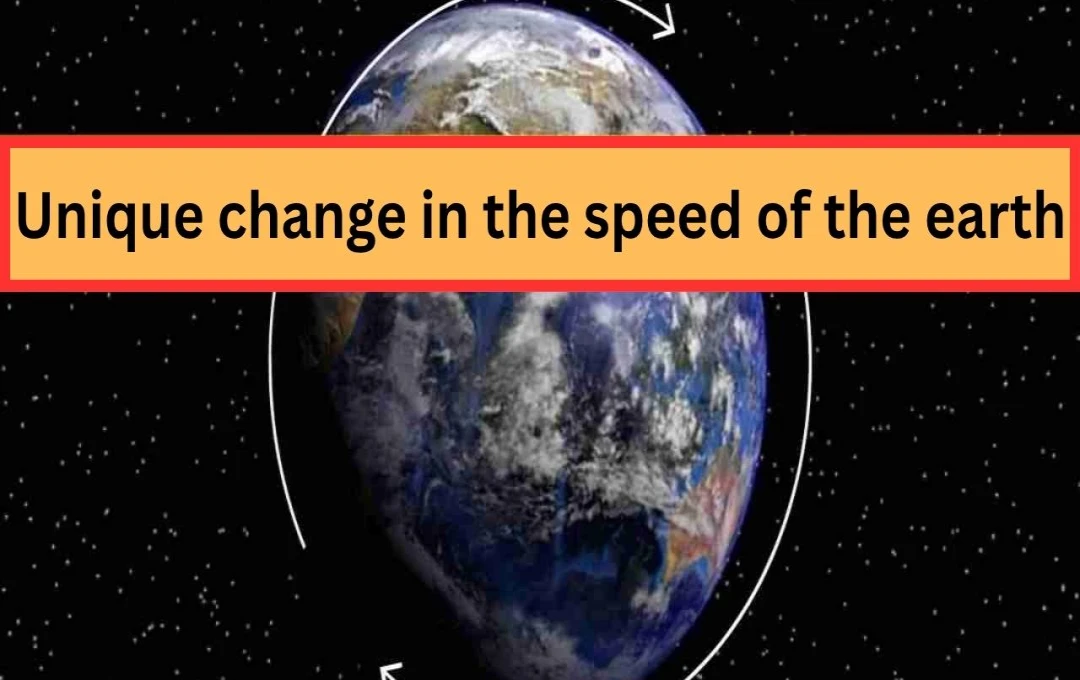The Earth will rotate faster than usual in July-August 2025, resulting in some days being shorter by 1.5 milliseconds. According to scientists, this change is occurring due to melting glaciers and movements within the Earth.
Earth Rotation: According to a new report by scientists, the Earth will rotate slightly faster than its normal speed in July and August 2025. Due to this increased speed, some days may be slightly shorter than usual. According to a report by Timeanddate.com, the days on July 9, July 22, and August 5 will be approximately 1.5 milliseconds shorter. For example, the day of August 5 could be 1.51 milliseconds shorter than normal.
Why is there a change in the Earth's rotation speed?
This unusual speed of the Earth has become a surprising topic for scientists. Experts believe that movements in the Earth's core, tectonic activities, and causes such as the redistribution of mass due to the melting of glaciers could be behind this change. When thick layers of ice melt, it affects the rotational balance of the Earth and changes its speed.

The role of climate change and global events
The melting of glaciers due to global warming is now becoming common. Scientists believe that climate events like El Niño and La Niña can also affect the Earth's rotational speed. El Niño affects the sea surface temperature, which can lead to slight changes in atmospheric pressure and the Earth's speed.
The need to remove 'leap seconds' in the future
According to physicist Judah Levine of the National Institute of Standards and Technology (NIST), this faster speed of the Earth is quite unexpected. During an interview in 2021, he said that scientists had always expected the Earth's speed to slow down over time and that there would be a need to add 'leap seconds'. But now the circumstances are changing, and there is a possibility that 'leap seconds' will have to be removed for the first time in 2029.
Preparations begin for changes in the time calendar
This new movement of the Earth has also moved towards affecting the global time determination system (Coordinated Universal Time - UTC). If this trend continues, the time calendar may need to be redefined in the future. This will also affect technical systems around the world, especially in areas such as GPS, internet servers, and satellite communications, where even a slight difference in time is significant.

Is the moon also a part of this change?
Another interesting fact has come to light in the Timeanddate.com report. On the three dates in 2025 when the days will be shortest, the Moon will be farthest from the Earth's equator. The gravitational relationship between the Moon and the Earth is quite deep, and it can affect the speed of the Earth's rotation on its axis. However, this relationship is still a subject of study for scientists.
Historical changes in the Earth's rotational speed
The Earth's speed has never been stable in history. Calculations have revealed that millions of years ago, a year had between 490 and 372 days. Gradually, the Earth's speed became stable, and currently, it completes one revolution around the Sun in approximately 365.25 days. Now, a subtle change is being seen in this speed again, which scientists are viewing as a new beginning.
Why is the difference of milliseconds important?
Milliseconds, although they may sound like a very small difference, are extremely important in the technical world. The accuracy of clocks around the world, space missions, communication satellites, and international financial markets depends on this minute time calculation. If the days become a few milliseconds shorter, the entire global data network may have to be reset.















